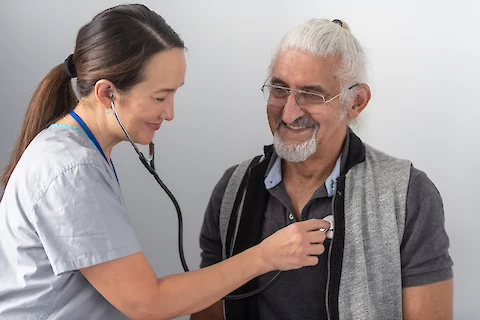
The month of February is recognized across the United States as American Heart Month, a time devoted to spreading awareness about coronary health and the prevention of heart disease. For those who care for seniors, this is a critical time to understand and recognize the indications of a heart attack in seniors and to know how to respond promptly and effectively.
A coronary problem can strike without warning, and seniors are particularly vulnerable.
Understanding Heart Problems in Seniors
Heart attacks, medically known as myocardial infarctions, occur when blood flow to a part of the heart gets blocked, usually by a blood clot. This can lead to damage or destruction of the coronary muscle.
Quick response in such situations is crucial because the longer the heart is deprived of blood, the more damage it sustains. Seniors can be more susceptible to cardiac emergencies due to factors like age-related changes in the heart and blood vessels, pre-existing health conditions, and a higher risk of clot formation.
Recognizing the Signs of a Heart Attack in Seniors
Recognizing the signs of a myocardial infarction is vital to ensuring prompt medical attention. Common symptoms include chest pain or discomfort, shortness of breath, nausea, lightheadedness, and cold sweats.
However, symptoms in seniors can differ. They might experience less classic symptoms like fainting, extreme fatigue, or even confusion. These symptoms may appear subtle, but early detection can provide a faster response.
Immediate Actions to Take During a Cardiac Emergency
Should you suspect that a senior in your care is having a coronary problem, there are life-saving steps you can follow. Knowing ahead of time will allow you to stay calm and help anyone needing it.
1) Call 911 immediately. Even if you're uncertain, it's always better to err on the side of caution.
2) While waiting for help to arrive, keep the senior calm and comfortable.
3) Encourage them to rest and avoid physical strain.
4) If prescribed, help them take their nitroglycerin.
5) If they have no medication and aren't allergic, have them take an aspirin. It may help thin the blood and reduce coronary damage.
Creating a Personalized Response Plan
While understanding symptoms of impending cardiac infarctions and immediate response steps is essential, nothing beats a personalized response plan. This plan should be crafted with the guidance of the senior's doctor and should consider their unique health needs and circumstances.
It may include specific medications, instructions about whom to contact, dietary recommendations, and more. Having a detailed plan can provide clarity during an emergency, reducing panic and facilitating a swift, effective response.
Senior Helpers Provides Custom Care Services
Educating yourself about heart attacks in seniors this American Heart Month is a proactive step in ensuring the well-being of older adults in your care.
For those residing in Milwaukee, Glendale, Brookfield, and Germantown, Senior Helpers Milwaukee stands ready to assist you in navigating the health challenges faced by seniors. Contact us to learn more about our senior care services!